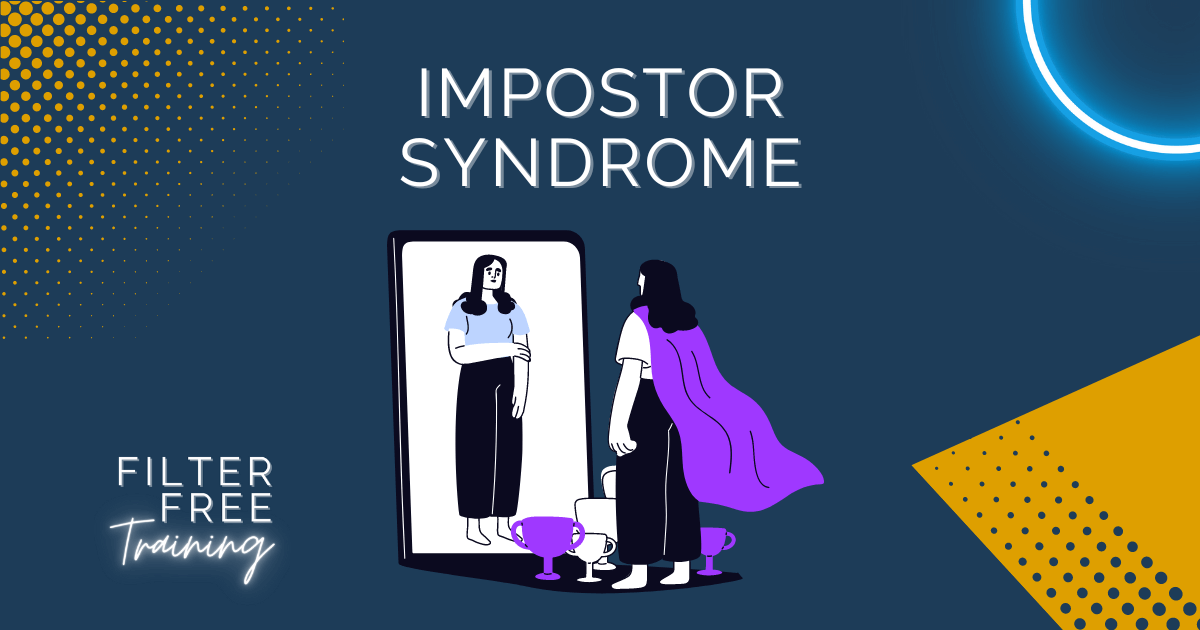Impostor syndrome, despite its prevalence, remains one of the least discussed topics in the world of work. It’s that nagging feeling of self-doubt and inadequacy, despite evidence of success. In this blog, we will talk about what impostor syndrome is, its impact on individuals, and strategies to overcome it.
Defining Impostor Syndrome
Impostor syndrome is a psychological phenomenon where individuals doubt their accomplishments and have a persistent fear of being exposed as a fraud, despite evidence of success. It often manifests as feelings of inadequacy, self-doubt, and a belief that one’s achievements are the result of luck rather than skill or hard work. Imposter syndrome can affect anyone, regardless of their background, experience, or level of success.
Common Signs and Symptoms
Recognizing impostor syndrome is the first step in overcoming it. Some common signs and symptoms include:
- Self-doubt: Constantly questioning your abilities and feeling like you’re not good enough.
- Perfectionism: Setting unrealistically high standards for yourself and feeling like anything less than perfection is a failure.
- Fear of failure: Avoiding taking risks or pursuing new opportunities due to a fear of failure or rejection.
- Discounting success: Minimizing or dismissing your achievements as luck or timing rather than acknowledging your skills and hard work.
- Overworking: Feeling the need to overwork or overprepare to compensate for perceived inadequacies.
Understanding the Impact
Impostor syndrome can have a significant impact on individuals’ mental health, well-being, and career progression. It can lead to feelings of anxiety, stress, and burnout, as individuals constantly strive to prove their worth and avoid being exposed as a fraud. Moreover, imposter syndrome can hinder career advancement and personal growth by holding individuals back from seizing new opportunities or pursuing their goals with confidence.
Strategies to Overcome Impostor Syndrome
While overcoming impostor syndrome is not easy, it is possible with self-awareness and proactive strategies. Here are some effective strategies to help you combat imposter syndrome:
- Acknowledge your feelings: Recognize that imposter syndrome is a common experience and that many successful individuals struggle with self-doubt. Acknowledging your feelings of inadequacy is the first step toward overcoming them.
- Challenge negative thoughts: Challenge negative thoughts and beliefs about yourself by focusing on evidence of your achievements, skills, and abilities. Keep a record of your accomplishments and positive feedback to remind yourself of your capabilities.
- Embrace imperfection: Accept that perfection is unattainable and that making mistakes is a natural part of learning and growth. Embrace imperfection and view failures as opportunities for growth and development rather than signs of incompetence.
- Seek support: Reach out to trusted friends, family members, or colleagues for support and encouragement. Share your feelings of self-doubt and vulnerability with others who can provide reassurance and perspective.
- Practice self-care: Prioritize self-care and well-being by engaging in activities that promote relaxation, stress relief, and self-compassion. Take breaks when needed, practice mindfulness or meditation, and engage in hobbies or activities that bring you joy and fulfillment.
- Set realistic goals: Set realistic, achievable goals for yourself and celebrate your progress along the way. Break larger goals into smaller, manageable tasks and focus on taking one step at a time.
Conclusion
Imposter syndrome is a common experience that can affect individuals at any stage of their life. By understanding the signs and symptoms of imposter syndrome and implementing strategies to overcome it, you can cultivate confidence, resilience, and self-belief in your abilities. Remember that you are not alone in experiencing imposter syndrome, and reaching out for support is a sign of strength, not weakness. Embrace your accomplishments, embrace your imperfections, and embrace your journey toward self-acceptance and success.
For more training or course on imposter syndrome, get in touch with us at Filter Free Training to find out more about how we can support you and your staff.



